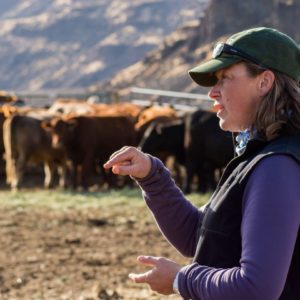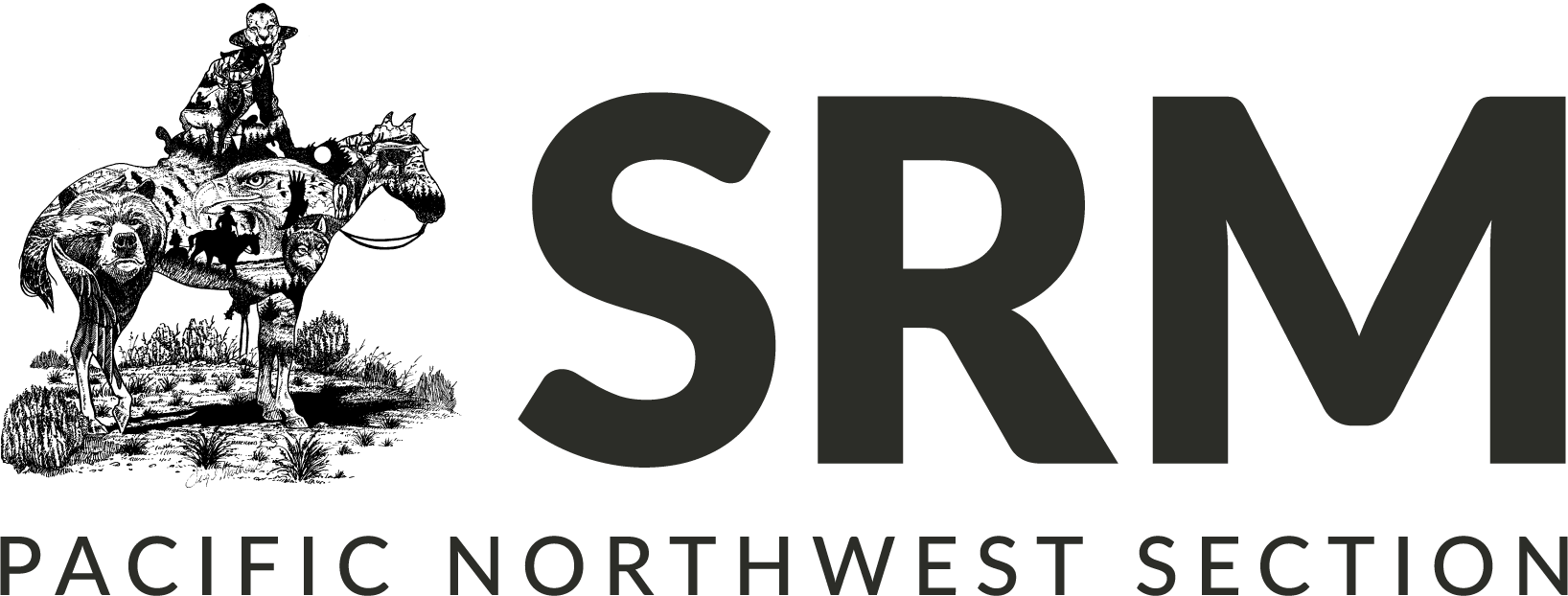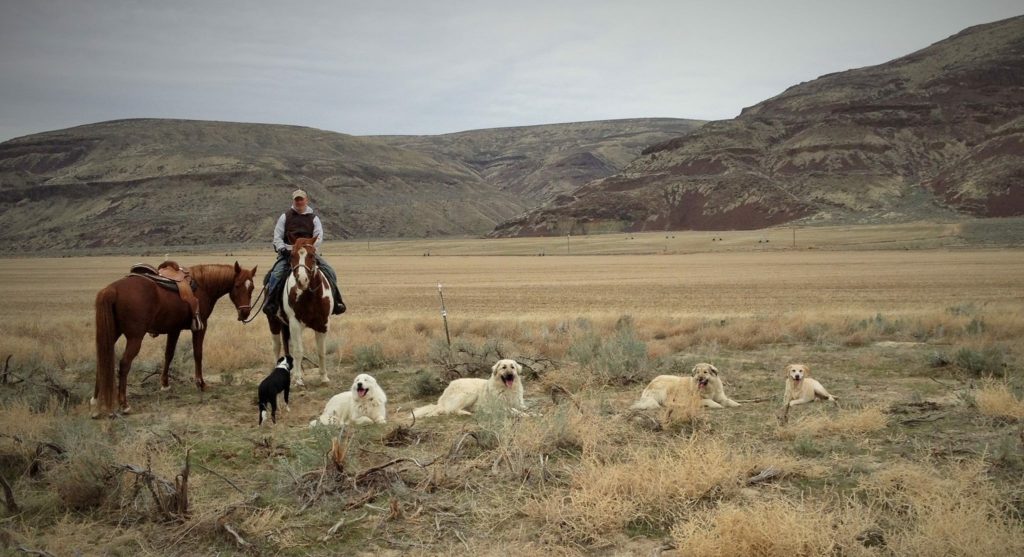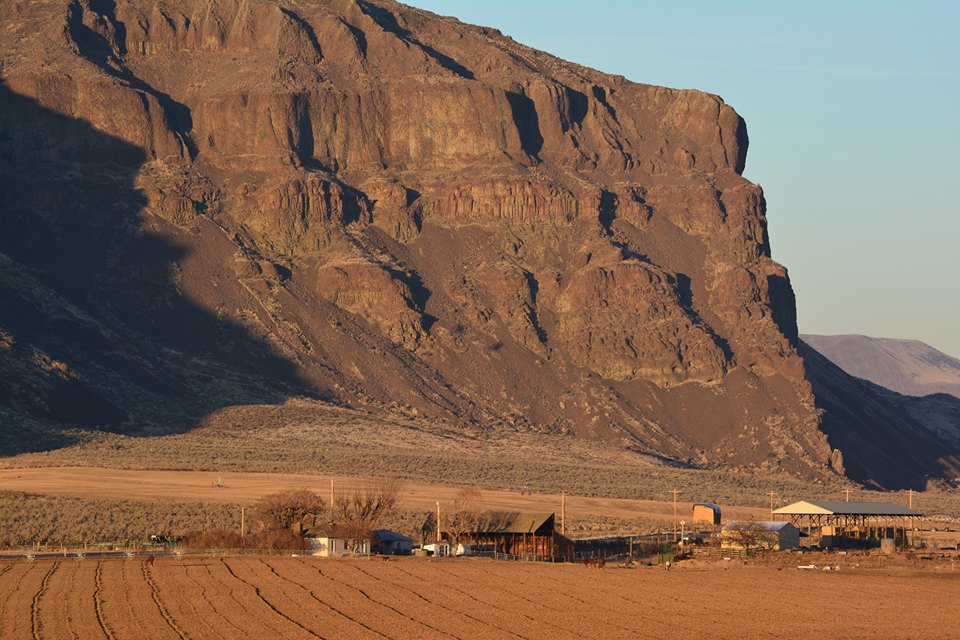 Molly Linville, the 2018 Redd Fund Awardee, runs KV Ranch which encompasses 6,000 acres in the center of Washington’s arid, shrub-steppe habitat near the small town of Palisades. KV Ranch raises mostly commercial Angus cattle, and alfalfa and timothy hay. Molly has been running the cow-calf and haying operations since 2012 when her husband David and she unexpectedly inherited the ranch following David’s father’s sudden death. Prior, she worked for US Fish and Wildlife Service as a wildlife biologist in central Washington. David continues to work off the ranch.
Molly Linville, the 2018 Redd Fund Awardee, runs KV Ranch which encompasses 6,000 acres in the center of Washington’s arid, shrub-steppe habitat near the small town of Palisades. KV Ranch raises mostly commercial Angus cattle, and alfalfa and timothy hay. Molly has been running the cow-calf and haying operations since 2012 when her husband David and she unexpectedly inherited the ranch following David’s father’s sudden death. Prior, she worked for US Fish and Wildlife Service as a wildlife biologist in central Washington. David continues to work off the ranch.
Molly was raised on a wheat and barley farm near Reardan, Washington. She holds a Bachelor of Science degree in wildlife biology from the University of Montana and began working for U.S. Fish and Wildlife Service as a wildlife biologist and then wildlife refuge manager in 2000. At the time they inherited the ranch, she was completing her Masters of Science degree at Washington State University.
Since taking over the ranch operation, Molly culled the herd aggressively, retaining only those cows that thrived in its challenging climate and rugged terrain. She started a small herd of 30 goats for weed management. Molly attended many stockmanship workshops to develop skills needed to calve out, move, and doctor cattle by herself. She adopted Bud Williams style stockmanship, can handle cattle in any situation, and more importantly, can target graze areas of the ranch that are not crossed fenced. Her stockmanship skills were severely tested in June of 2017 when a fire burned almost all of KV’s range down to bare mineral soil. She managed to get all of the cattle to safety and now faces the duel challenge of ushering both the range and herd through fire recovery.
Molly’s interest in brittle rangeland was piqued while working as a wildlife biologist. She observed that rangeland habitat recovery from disturbance was often slow to non-existent, no matter the considerable resources U.S. Fish and Wildlife Service applied to the disturbed area. But, when she took over the ranch, she noted the very same habitat type was thriving and even included many rare plants and two threatened and endangered wildlife species in spite of being grazed for 100 years. This observation launched her deep study of brittle rangelands, starting with Allan Savory’s work and branching out from there. She says, “I am hooked!”
Consequently, Molly was thrilled to receive the Redd Fund Award and to attend the 2019 SRM Annual Meeting in Minneapolis. She describes the sessions as:
“packed with fascinating information that I know I am going to utilize as the ranch recovers from the fire. More importantly, it was so terrific to be surrounded by people who love range as much as I do! I don’t think most people find it an easy landscape to love, but it’s my favorite and it was wonderful to get to talk about it with like-minded folks.”
Molly notes two challenges with SRM’s mission: how academic level information is disseminated down into real world usable format and how that usable format gets put into the hands of producers who are actually going to implement it on the landscape. She concludes:
“I know both are achievable and I hope I get to be a part of the solution! Thank you so much to everyone who made it possible for me to become a part of SRM, I know being a member is going to accelerate a deeper understanding of range function, health and regeneration for me.”
Molly is also engaged with her community. She is working with state legislators on fire suppression in communities not served by a fire district, fire impacts on rangeland, environmental regulations that have become too cumbersome for small family farms, cattle grazing on public lands, and predator/livestock conflicts. She is a member of the State’s Wolf Advisory Group, serves as a Planning Commissioner for Douglas County, is on the school board for the nearby two room school that serves 25 students in Palisades, and is a proud member of Washington Cattlemen’s Association.
The best way to contact Molly is by email .



